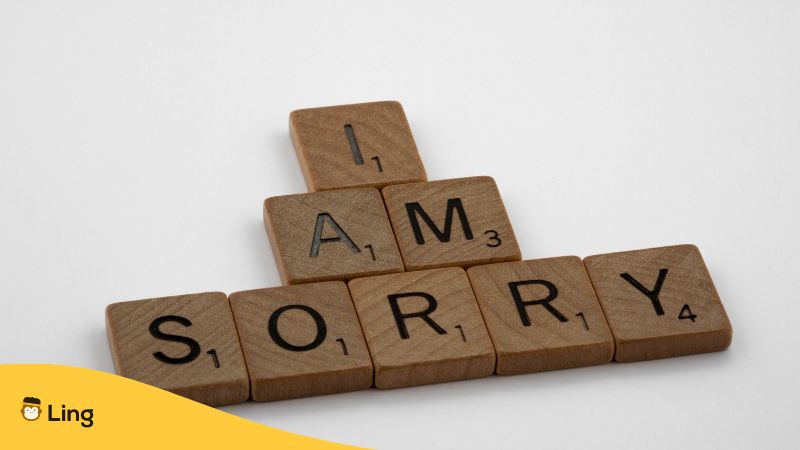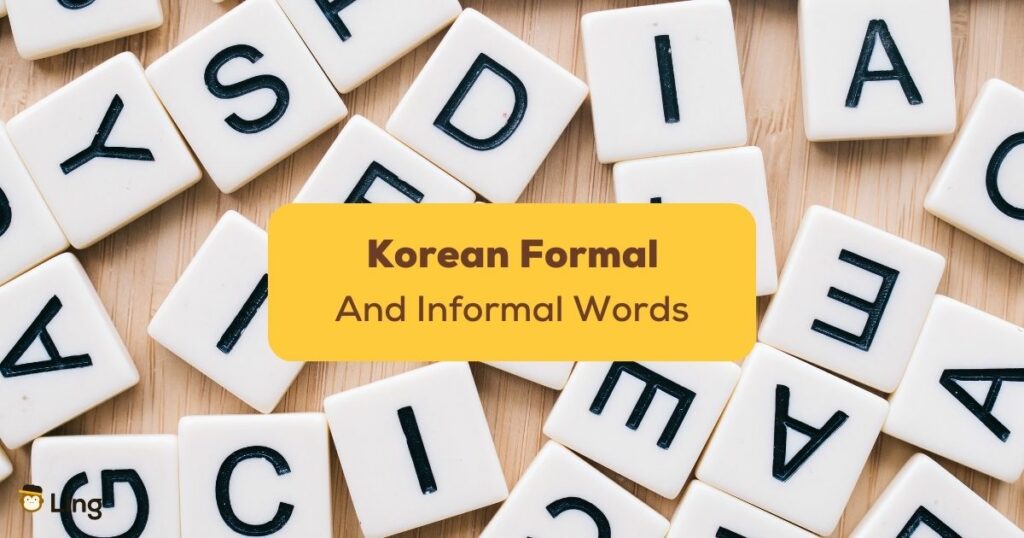When watching several dramas, do you ever notice the Korean formal and informal words actors use? You see, the Korean language is a pretty complex mother tongue to learn because of these sudden shifts. They have plenty of rules and words that’ll definitely confuse you. To make it easier for you, here are some formal and informal words that you can practice!
Using the appropriate language is essential in Korean culture, as it reflects the respect and politeness conveyed in a conversation. The choice between informal and formal language depends on factors such as the relationship between speakers, the setting, and the social hierarchy.
When learning Korean, it’s important to study both informal and formal languages to be able to communicate effectively in various contexts. While informal language allows for greater closeness and familiarity, formal language is necessary to show respect and maintain proper etiquette in formal situations.

Difference Between Korean Formal And Informal Words
Informal Korean, also known as colloquial or casual Korean, is used in informal conversations among friends, family, and peers. A more relaxed and casual tone characterizes it. Informal words often involve abbreviations, slang, and expressions that reflect familiarity and informality. They are used in every day, non-formal settings. It’s important to note that while these words are acceptable among close friends or peers, they may not be appropriate in formal or professional contexts.
Formal Korean, also known as polite or honorific words, is used to address strangers, older individuals, or those of higher social rank formally. Using them shows deference, politeness, and respect toward the listener. It is used in professional settings, formal ceremonies, public speeches, or when addressing superiors. It’s important to be familiar with formal Korean to show proper respect and courtesy.
Basic Formal And Formal Korean Words
These are some words that you’ll typically encounter when people speak with close friends, family members, and co-workers. Try to spot the differences in the basic words that most individuals use when they talk to others in South Korea.
1. 알았어 (Arasseo) And 알았어요(Arasseoyo)
알았어 (Arasseo) is commonly used in casual conversations to acknowledge understanding or agreement. You may use this with your friends or acquaintances you informally speak with. While its formal form is 알았어요(Arasseoyo) which also means “Okay” or “I know” in English.
2. 짱 (Jjang) And 엄청난 (Eomcheongnan)
You may have encountered this expression in several Korean dramas. People usually use the slang word 짱 (Jjang) in an informal speech wherein they attempt to say “Awesome” or “Great” in a gleeful way. In terms of its formal counterpart, it’s 엄청난 (Eomcheongnan), which means the same thing. But it’s more appropriate to use formal polite conversations.
3. 고마워 (Gowawo) And 감사합니다 (Kamsahamnida)
Wanting to extend your gratitude towards someone is one of the common things that you do when others treat you nicely. In the Korean language, if you wish to say “Thank you” to your friends or family members, you can say 고마워 (Gomawo). This is one of the most basic Korean phrases used in casual speech, and it creates a good bond between individuals.

4. 미안 (Mian), 미안해요 (Mianhaeyo) And 미안합니다 (Mianhamnida), 죄송합니다 (Joesonghamnida)
One of the simplest and most overused words in everyday situations is “sorry.” There are plenty of common Korean phrases when apologizing. The first informal phrase that you can use is 미안 (Mian). You may hear it in Korean dramas when people say sorry about inconsequential things. While 미안해요 (Mianhaeyo) is the more polite way to say sorry, although it’s still used to express your apologies informally but showing a little more care for their feelings.
Its formal version, on the other hand, is 죄송합니다 (Joesonghamnida). It also expresses politeness and is typically used in a formal setting. While you may also use 죄송해요 (Joesonghaeyo), the latter is most likely used in everyday life.

5. 안녕 (Annyeong) And 안녕하세요 (Annyeonghaseyo)
You can’t go on with the day without saying “Hello” to your friends and co-workers. The Korean word for it is “Annyeong,” but, of course, it has some variations. 안녕 (Annyeong) is a more casual and informal way of saying hello. It is commonly used between friends, family members, or people of the same age or close relationship. It can be used as a greeting or a farewell.
안녕하세요 (Annyeonghaseyo) is a more formal and polite version of the greeting. It is used in formal situations, when addressing someone older, in professional settings, or with people you are not familiar with. It is a respectful and polite way to greet them. Nonetheless, both greetings can be used at any time of the day and are widely used in Korean culture to greet and acknowledge others.

6. 잠깐만요 (Jamkkanmanyo) And 실례합니다 (Sillyehamnida)
Have you ever experienced getting shoved in a corner in a train station? Or do you frequently use “Excuse me” when walking past someone? Well, if you prefer treating people with the utmost respect, this translation will help you. In modern-day Korea, only some use this word, but there’s no harm in utilizing them. 잠깐만요 (Jamkkanmanyo) is the standard way to say it, while 실례합니다 (Sillyehamnida) classifies at the formal speech level.
7. 줘 (Jwo) And 주십시오 (Jusipsio)
There are times when you need to ask someone a favor, and interestingly, there are plenty of ways to do it. You may frequently hear 줘 (Jwo) from people of the same age. While if주십시오 (Jusipsio) is the highest level of 주세요 (Juseyo), the standard version of “please” in the Korean language.
Want To Learn Korean? Try Ling Today!
As we learned in this post, there are different Korean speech levels that you’ll need to master upon learning this native language in North and South Korea. If you enjoyed this guide about formal and informal Korean words, you might want to know more about the Korean alphabet, culture, and more. It may sound challenging, but Ling can be your buddy for this journey!
Allocating 20 minutes of your time every day after choosing from the 60+ languages offered in the app can help you master it seamlessly! Quizzes and practice exercises are also available; you may take them anytime. Download Ling today on Play Store and App Store for FREE to get started!



































































